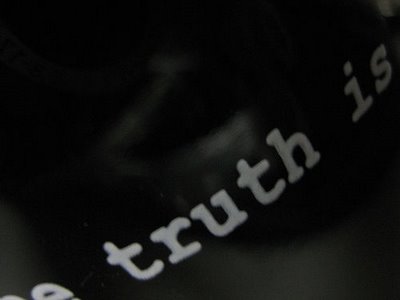 From Scot McKnight’s Jesus Creed:
From Scot McKnight’s Jesus Creed:Telling God the truth awakens forgiveness. Sometimes one gets the impression from misguided experts that God is holding a club over our heads, and the moment we tell the truth he cracks us a good one and then says, “You ugly little sinner!”
But Abba is not like that. The promise of the Jesus Creed* is that Abba loves us. He creates us to love him; he desires our fellowship. So truthtelling is not an opportunity for head bashing, but an opportunity for the heart of Abba to be thrilled by reconciling forgiveness.
Henri Nouwen once confessed the following about truthtelling:I am beginning now to see how radically the character of my spiritual journey will change when I no longer think of God as hiding out and making it difficult as possible for me to find him, but instead, as the one who is looking for me while I am doing the hiding.Truthtelling reunites us with God because it unleashes his forgiveness. Prior to telling the truth, we hide and are in what Philip Yancy calls the cycle of ungrace. By failing to tell the truth, we face God with our heads cocked sideways. Lewis Smedes, who has poured grace all over the discussion of forgiveness, tells us, “without truthfulness, your reunion [with God] is humbug.”
About what are we to tell the truth? Our whole self, of course. . . .
*The "Jesus Creed" is McKnight’s term for Jesus’ version of the Shema, a sacred Jewish creed recited daily (when waking and when retiring) lifted from the Bible, Dueteronomy 6:4-9 along with two other texts. When Jesus is asked by an expert in the law which of the commandments is the most important, Jesus answers his question by reciting the Shema, but then, McKnight points out, he also adds to it (what follows is quoted directly from McKnight's Jesus Creed):
“Hear, O Israel, the Lord our God, the Lord is one.If you want to read more about the Jesus Creed on this blog, read ‘Doing church’—but I wholeheartedly recommend you get McKnight's book.
Love the Lord your God with all your heart, with all your soul, with all your mind, and with all your strength.” [So far, so good; this is Deuteronomy 6:4-5]
[And now Jesus adds a verse from Leviticus 19:18.]
The second is this: “Love your neighbor as yourself.” There is no commandment greater than these.
(image: powerbooktrance at flickr.com)